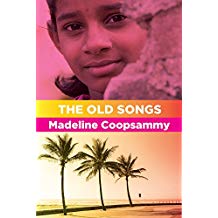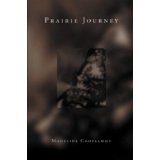Madeline Frances Coopsammy was born in Trinidad when it was still a British colony. She studied at Delhi University, India prior to immigration to Canada and settling in Winnipeg, Manitoba in 1968. In 1987, she received her B.Ed. and M.Ed. from the University of Manitoba where her graduate thesis was entitled “The Development of a Multicultural Short Story Anthology for Grades Ten to Twelve in Canadian Schools.” Her short stories and poems have appeared in many literary journals and anthologies. Coopsammy is now retired from teaching and has more time for family and writing. She is a regular book reviewer for the Winnipeg Free Press, Prairie Fire, and the Indo-Canadian Telegram.
Poetry
Prairie Journey
Toronto: TSAR Books, 2004.
PS8605 .O66 P73 2004
Publisher’s Synopsis
This collection is a sensory journey from a warm green equatorial island to the changing seasons of a Prairie landscape. The poems explore the effects of colonialism, ancestral memories, and immigration on the poet’s journey from youth to maturity. The frantic push for first-world development, rapidly eroding the once-pristine landscape and simple way of life of a third-world island, and creating a new race of colonials, is passionately delineated.

Fiction
The Old Songs: A Novel
Toronto: Inanna Publications, 2018.
PS8605 .O66 O43 2018
Publisher’s Synopsis (from its website)
Tessa comes of age as the advent of Independence on a small British Caribbean island disturbs the status quo and establishes a new class and race hierarchy in a country that historically was a polyglot nation. As East Indians living in straitened circumstances in a city in which the social mores are now dictated by the white, mixed race, and well-to-do Blacks, Chinese, Syrians, and Portuguese, the family is under siege as they struggle with financial hardship and discrimination when they are forced to move from their beautiful home in Port of Spain to a much smaller house in the impoverished suburb of San Juan de la PIna. The family’s social life is centred around the Catholic Church and their extended family, and they have their own prejudices as Tessa discovers when the restrictions placed on them by being Catholic hampers her family’s ability to improve their circumstances. Winning entrance into the most prestigious Convent School in the Port of Spain is Tessa’s only hope to get the education she needs to climb out of poverty and break free of the racism that seeks to define and restrict her life.
Selected Criticism and Interpretation
Chilana, Rajwant Singh. “Madeline Coopsammy.” In South Asian Writers in Canada: A Bio-Bibliographical Study. Surrey, BC: Asian Publications, 2017, 218-219.
Z1376 .S68 C45 2017
Kerber, Jenny. “Unsettling the Prairie: The Ecological Poetics of Tim Lilburn, Louise Halfe, and Madeline Coopsammy.” In Writing in Dust: Reading the Prairie Environmentally. Waterloo: Wilfrid Laurier University Press, 2010, 117-158.
PS8131 .P7 K47 2010
Sarbadhikary, Krishna. “A Passage to the Prairies and Back: Madeline Coopsammy.” In Surviving the Fracture: Writers of the Indo-Caribbean Diaspora. New Delhi: Creative Books, 2007, 272-293.
PS8089.5 .S68 S37 2007
